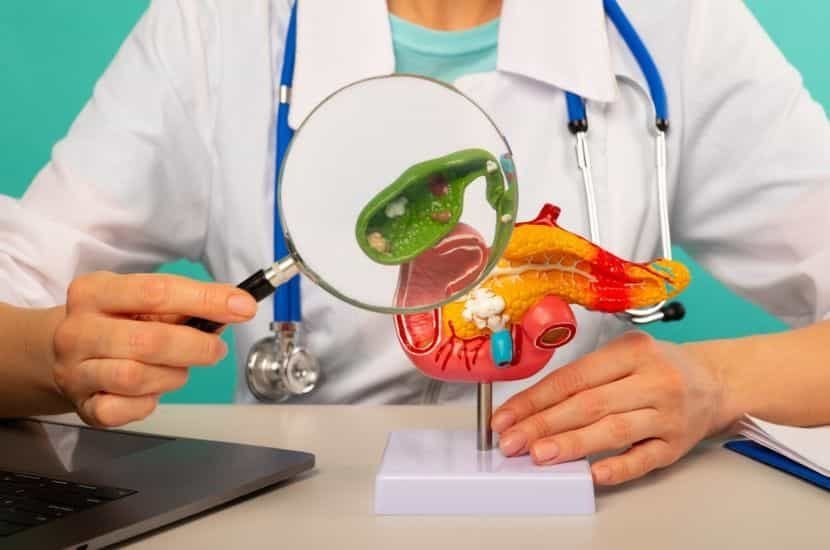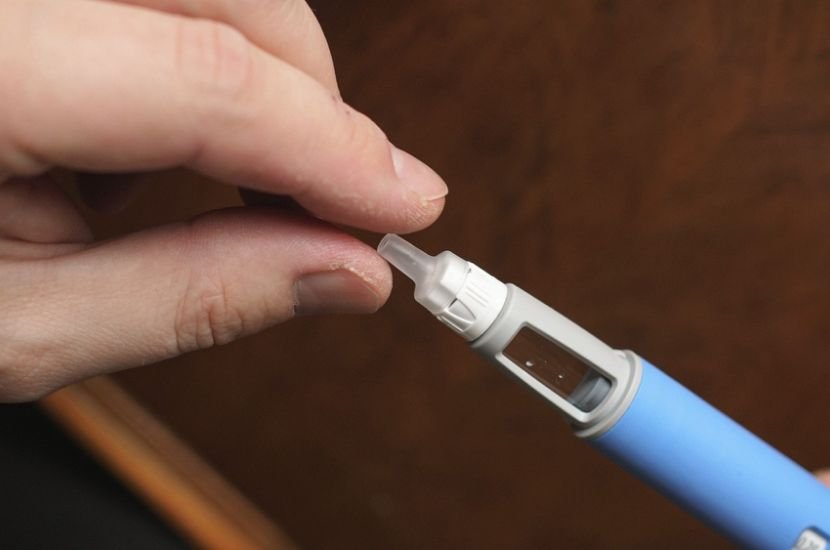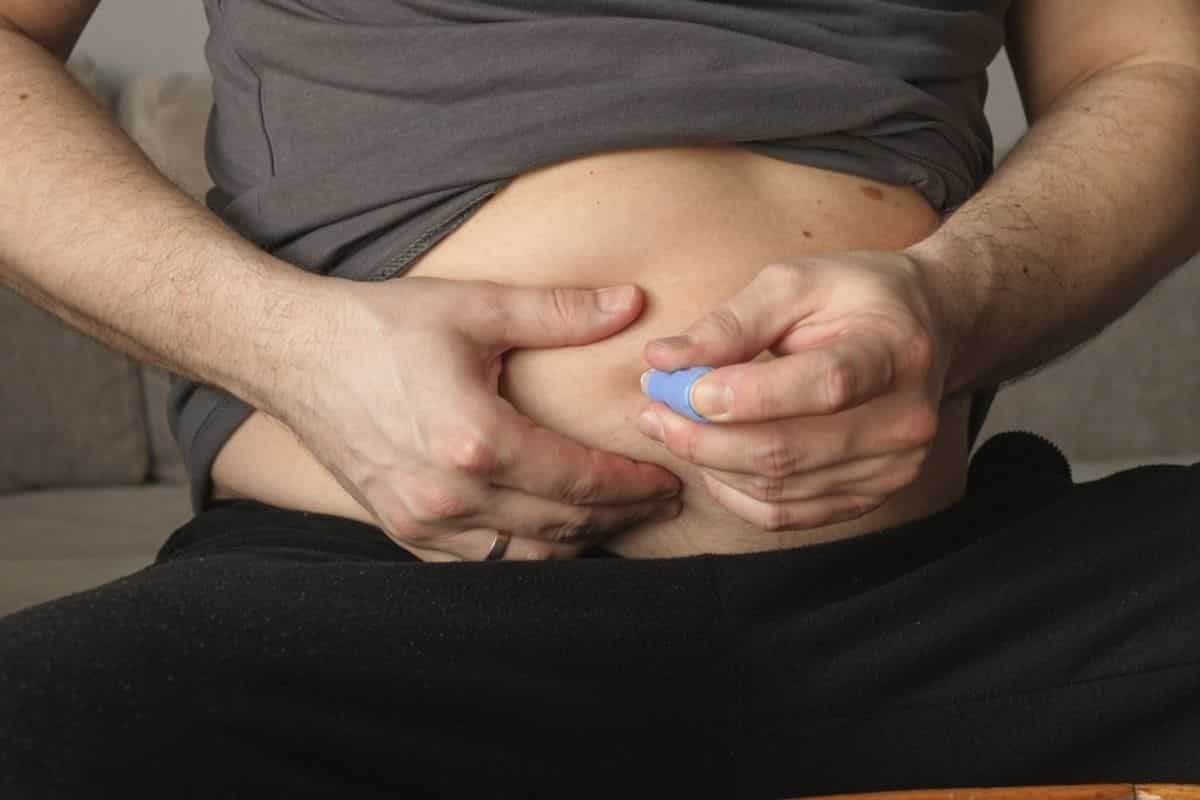If you are going through a procedure of gallbladder removal and now wonder if it’s still possible to take Ozempic? Gallbladder removal is a common medical procedure that can affect your diet, lifestyle, and medicine options.
With so many medication options available, it can be difficult for you to decide which one is the best.
But don’t worry. In this blog post, we’ll try to solve most of your problems related to Ozempic and gallbladder. We explore the benefits and risks of taking Ozempic after gallbladder removal.
Plus, we’ll also talk about the role of the gallbladder in our body and answer the most important question: “Can I take Ozempic after gallbladder removal”? So, let’s jump into it.
Understanding Ozempic and its usage
Ozempic is also known as semaglutide. It is a medication that is bascially used to treat type 2 diabetes in adults. It belongs to a class of drugs known as glucagon-like peptide 1 (GLP-1) agonists, which stimulate the release of insulin from the pancreas and help the body use its own natural insulin more effectively.
According to Drugs, it can also lower the risk of major cardiovascular conditions like heart attack, stroke , or in some cases death in adults with type 2 diabetes and heart disease by maintaining blood sugar levels.
Ozempic Side Effects
Ozempic can cause some side effects. Some people might experience them, while others may not. Common side effects you might come across include:
- Pancreatitis
- Low blood sugar (for people with type 2 diabetes)
- Changes in vision
- Kidney problems
- Hypoglycemia when used with other diabetes medicines
- Feeling queasy, heartburn, gas, bloating
- Feeling nauseous, vomiting, stomach pain, not feeling hungry
- Dealing with diarrhea or constipation
- Runny nose or a sore throat
- Symptoms like stomach flu
- Headache, dizziness, feeling tired.
What is the role of the Gallbladder in our body?

The gallbladder is a small and pear-shaped organ below the liver that stores and releases fluid, called bile. Our liver produces this fluid to help with the digestion of fats in the food you eat. Here are the main roles it plays:
Fat Digestion
The main function of the gallbladder is to store and concentrate bile. When you consume fatty foods, the gallbladder releases the bile into the small intestine, which helps in digestion and absorption of fats and fats-soluble vitamins.
Nutrient Absorption
The bile released by the gallbladder also aids in the absorption of nutrients from the food we eat. This is particularly important for absorbing the fat-soluble vitamins A, D, E, and K. Without the gallbladder’s contribution, these vital nutrients would be much less available for use within the body.
Waste Elimination
The gallbladder and its bile play a significant role in removing waste from our bodies. Bile removes waste products and toxins, including aged red blood cells and certain metabolic waste products, from the liver to be excreted in bowel movements.
How to manage a diabetic condition after gallbladder removal
Managing diabetes can be quite a journey, especially after having your gallbladder removed. It comes with its own set of unique challenges, but don’t worry, you’re not alone!
Impact of gallbladder removal on diabetes management
The removal of the gallbladder can impact the way your body processes certain foods, especially fats[^1^]. The main function of the gallbladder is to store bile produced by the liver, which helps in the digestion of fats.
After a cholecystectomy, bile flows directly into the small intestine, which may lead to changes in digestion and metabolism. People may experience symptoms like diarrhea and bloating, especially after meals rich in fats[^2^].
Moreover, research shows a potential link between gallbladder removal and increased insulin resistance, which can potentially worsen diabetic conditions[^3^]. However, more research is needed to fully understand the implications as these findings are not conclusive.
So it’s important to work closely with your doctor to adjust your diabetic management plan post-gallbladder removal, incorporating necessary changes in diet, medication, and lifestyle to ensure optimal blood sugar control.
Importance of Ozempic in managing diabetes after surgery
Although metabolic changes may occur after gallbladder removal, it’s important to know that Ozempic plays an effective role in diabetes management after surgery.
Ozempic does not directly interact with bile or fat metabolism, and hence, its functionality should not be affected by the absence of the gallbladder.
A study published in the Diabetes, Obesity, and Metabolism journal demonstrated that people with diabetes who had their gallbladders removed responded well to GLP-1 receptor agonists like Ozempic. These medications improved glycemic control without causing major gastrointestinal side effects [^5^].
However, patients must consult their healthcare providers before taking Ozempic due to the body’s altered state post-surgery. Your doctor may suggest regular monitoring of your blood glucose levels and adjust your dosage accordingly to achieve optimal glycemic control post-cholecystectomy.
Side effects of gallbladder removal on the Body
Gallbladder removal can cause some uncomfortable effects and potential complications in the body. Here are some of them:
Digestive Issues
Without a gallbladder, bile is released more frequently into the small intestine. This can cause sudden rushes of bile like nausea, vomiting and even diarrhea. Some people may face difficulty in digesting fatty foods after gallbladder removal.
Nutrient Deficiencies
Without the help of gallbladder in fat digestion, our body’s ability to absorb nutrients can be impaired. This can especially affect vitamins like A, D, E, and K and cause these deficiencies if left untreated.
Liver Problems
Liver function can be affected after gallbladder removal due to the inefficient excretion of toxins from the body. This is especially true in cases where there was a pre-existing liver disorder before surgery.
Risk of Infection
When the gallbladder is removed, there is an increased risk of infection in the bile ducts. These infections can be severe and may require medical treatment to prevent any additional complications.
Can I take Ozempic after Gallbladder Removal?

Yes, you can take Ozempic after gallbladder removal. Ozempic does not rely on bile from the gallbladder for digestion or absorption so it should not be affected by gallbladder removal.
However, the side effects of Ozempic may hit you a bit harder if you don’t have a gallbladder. But don’t worry, only a few people have experienced this, as bile is released more quickly into the small intestine.
This can lead to some digestive issues like nausea, vomiting, diarrhea, and abdominal pain or discomfort. If you happen to experience any of these symptoms, it’s recommended to consult with your doctor.
Benefits of Ozempic after gallbladder removal
Ozempic, a GLP-1 receptor agonist, offers several benefits for those managing diabetes after gallbladder removal. Here are the key points:
1. Improved Glycemic Control: Ozempic helps people with type 2 diabetes control their blood sugar better by helping the body lower glucose levels after meals.
2. Weight Management: One of the notable benefits of Ozempic is its potential to aid in weight loss, which can be particularly beneficial for diabetes management. Losing weight can improve insulin sensitivity, making it easier to control blood sugar levels.
3. Cardiovascular Health: Ozempic not only helps with blood sugar and weight, but can also be good for your heart. It lowers the chances of heart problems like heart attacks and strokes in people with type 2 diabetes.
4. Low Risk of Hypoglycemia: Unlike some diabetes medications, Ozempic does not usually cause hypoglycemia (low blood sugar) when used alone. This makes it a safer option for people concerned about the risk of low blood sugar events.
5. Convenience: Ozempic is given once weekly, which may improve adherence and simplify the diabetes management regimen compared to medications requiring daily administration.
6. Compatibility with Post-Gallbladder Removal: Ozempic works well even if you’ve had your gallbladder removed, as it doesn’t affect bile or fat metabolism. This makes it a good choice for managing diabetes in this group.
Possible Side effects of taking Ozempic with no gallbladder
If you are taking Ozempic with no gallbladder, you might experience the following side effects:
- Increased frequency of digestive issues like nausea, vomiting, diarrhea, and abdominal pain.
- More severe reactions to the common side effects of Ozempic.
- You may feel discomfort, particularly when consuming fatty or greasy foods.
- There may be a chance of nutrient deficiencies due to poor fat digestion and absorption.
- You may experience some changes in blood sugar levels, so keep an eye on them regularly.
- Increased the risk of liver problems due to the inadequate excretion of toxins.
Seek your doctor if you experience any of these symptoms or any other unusual health issues.
What not to take after gallbladder removal?
According to Medical News Today, after gallbladder removal, some foods that you should avoid include:
- Fatty Foods
- Spicy Foods
- carbonated beverages
- refined sugar
- Dairy Products
- Alcoholic drinks, including beer, wine, and spirits
- Caffeine, often including in tea, chocolate, coffee, and energy drinks
- Gas-producing foods, including beans, lentils, broccoli, cabbage, onions, and carbonated drinks.
- High-Fiber Foods
In one study, they found that people who didn’t follow a low-fat diet after getting their gallbladder removed were much more likely to experience diarrhea one week after the procedure.
Our Recommendation
If you have had your gallbladder removed, it is important to talk to your healthcare provider before taking Ozempic. They can provide the best way to manage any potential side effects and help ensure that this medication is right for you. Your doctor may recommend that you take a lower dose of Ozempic or suggest other ways to control your blood sugar.
You need to maintain good digestion habits, try eating smaller meals more times in a day rather than large meals and avoid fatty foods. Eating healthy fiber-rich foods and drinking lots of water can also help keep digestive issues to a minimum and support better nutrient absorption.
Conclusion
In conclusion, the question “Can I take Ozempic after Gallbladder Removal?” is a common concern for those who have undergone this procedure.
The answer is yes, you can. However, some people with no gallbladder might experience more severe side effects when taking Ozempic due to changes in bile release and digestion.
So, consult with your healthcare provider before taking Ozempic or any other medication after a gallbladder removal. They can guide you on the right dosage and how to manage potential side effects. Healthy eating habits can also mitigate some of these side effects and ensure your body absorbs nutrients effectively.
FAQ
Is diabetes a risk after gallbladder removal?
A study conducted in 2014 found that gallbladder removal tripled the risk of developing type 2 diabetes. People without a gallbladder are advised to remain vigilant and monitor their blood sugar levels regularly.
What supplements are good after gallbladder removal?
If you’ve lost your gallbladder, you may benefit from taking an ox bile supplement. This can help alleviate symptoms like bloating, indigestion, light colored stools, diarrhea, fatigue after meals, and nutrient deficiencies.
Can gallbladder removal cause pancreas problems?
Yes, gallbladder removal can cause pancreas problems because food is more likely to remain in the stomach for longer periods of time which can lead to an overproduction of pancreatic enzymes and increased pressure on the pancreas.
Hello Friends!
My name is Ahmad, reading books and gaining knowledge about Health, skin and their conditions is my passion and I am here to share my knowledge and experience with you. I hope it’s very helpful for you.
Thank you very much.
